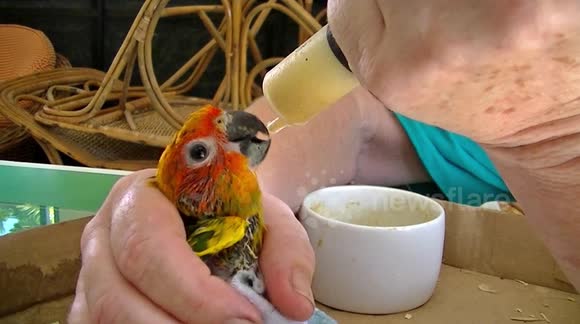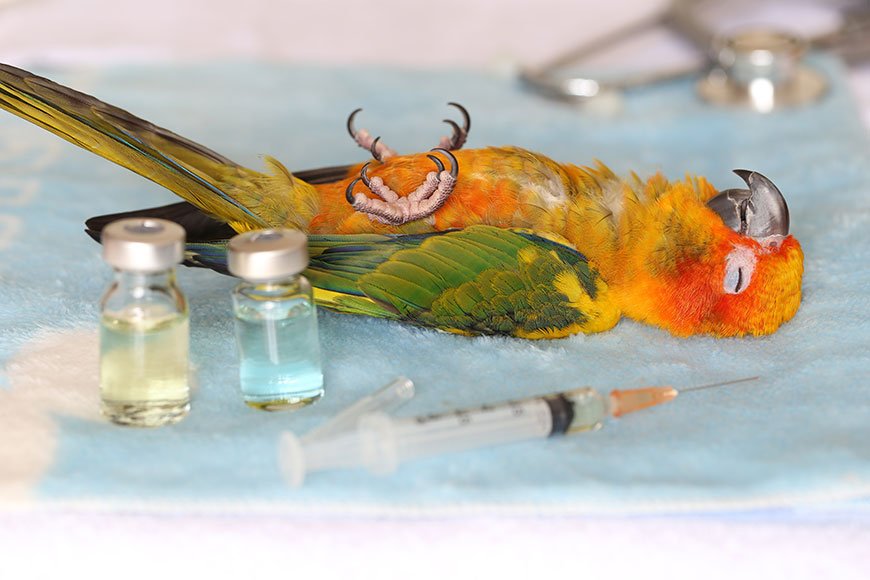If you have a sun conure or plan to get one, it’s important to learn all about sun conures. We will provide you with information on everything you need to know about them.
You’ve come to the right place if you want to learn more about Sun Conures or if you’re lucky enough to live with one of these vibrant birds. I give you depth information about Sun Conures’ feeding requirements, health issues, and many facets of their care and behavior are all provided in this blog.
What Is Sun Conure?
The Sun Conure is a parrot that belongs to the conure species. Sun conure is a beautiful and expensive parrot in the conure category. Its size is small and its striking rainbow-like colors. Sun Conure is known for its lively, vocal, and expressive nature.
| FACTS | DESCRIPTION |
| Scientific name | Aratinga solstitialis |
| Common name | Sun conure |
| Size | 12-13 inches long |
| Weight | 100-120 grams |
| Lifespan | 20-30 years |
| Color | Bright orange and yellow with traces of green and blue |
| Diet | Fruits, vegetables, seeds, nuts |
| Behavior | Social, playful, intelligent |
| Origin | Tropical rainforests of South America |
Sun Conure’s Native Region.
The Sun Conure is native to South America, notably Venezuela, Northern Brazil, and Guyana,
Care & Feeding.

Feeding and caring are very important for Sun Conures because they need good food and care to live a long life. We are going to tell you about the best food and care for Sun Conure birds, so please read carefully.
Here’s A Table Of Food For Sun Conure Birds.
| CATEGORY | FOODS |
| Pellets | High-quality parrot pellets |
| Fruits | Apples, oranges, bananas, grapes, mango |
| Vegetables | Broccoli, carrots, spinach, bell peppers |
| Nuts (occasional) | Almonds, walnuts, pecans |
| Treats (occasional) | Sunflower seeds, dried fruits |
Here’s A Table Of Caring for Conure Birds.
| TYPES OF CARE |
| Diet |
| Cage |
| Social Interaction |
| Sleep Schedule |
| Health Check-Ups |
1. Diet.

Diet is very important for any birds because it is essential for their fitness and lifelong well-being. So, you should pay attention to what your Sun Conure is eating. And give full nutrients food like pellets, fruits, and vegetables.
High-quality pellets.
Fresh fruits and vegetables
Whole grains
2. Cage.
The cage is like the home of a conure. You should provide a spacious cage with room for exercise and toys. Keep it clean, and regularly check if the bird has finished eating its food and if the cage is clean underneath.
The cage should be at least 20 inches wide, 20 inches deep, and 30 inches tall.
should have horizontal bars, as conures like to climb.
The cage should have a variety of perches,
The cage should have a variety of toys, including chew toys, foraging toys, and swings.
3. Social Interaction.
It is essential to monitor your birds and take care of them, if birds are in good health and feel strong you can interact with them. Spend time with your Sun Conure daily. This way, the bird can understand who its owner is.
Talk to your sun conure in a soft, soothing voice.
Offer your sun conure some safe and healthy toys to play with.
Pet your sun conure gently on the head or back.
4. Sleep Schedule.

Give your best friend, the Sun Conure bird, a set time to rest because a well-maintained sleep schedule is essential for a fresh mind and optimal performance.
Create a schedule indicating when to engage with the parrot and when to let it rest in its cage or on a tree in the garden.
Offer them a warm bath before bed.
Play some calming music or sounds.
Speak to them in a soft, soothing voice.
5. Health Check-Ups.

Health is one of the important factors for sun conure or any birds, Your birds have to take 2 or 3 times every month so you can understand your sun conure.
If your birds have any problems then check out easy. So, a check-up is important.
Personality & Behavior Of Sun conure.
The personality of the sun conure is impressive. some birds have a different personality of their reasons behind health issue problems, These birds are loyal and intelligent.
These birds have good behavior with anybody in their family. They can play with your family like dancing with them, singing, walking, etc.
Speech & Sound.
The voice of the sun conure is lively and sweet some sun conure has a more louder sound. Sun Conure can talk to owners or anyone, If Sun Conure goes through the talking training then he can understand and talk with them.
Some Fun facts about the sun conure.
Sun Conures are intelligent and playful, making them wonderful pets.
Their vibrant plumage showcases stunning shades of yellow, orange, and green.
These social birds thrive on interactions with both humans and fellow avian companions.
Sun Conures’ intelligence allows them to learn tricks and respond to calls.
They delight in playing with toys like bells and wooden chew toys.
Their cheerful calls, although loud, add to their lively personality.
Don’t forget to watch this.
Best Vegetables For Your Sun Conure.
Best Fruits For Your Sun Conure.
FAQs.
1. What is a Sun Conure, and where are they found?
A Sun Conure is a small parrot native to South America, primarily found in countries like Brazil, Guyana, Venezuela, and Suriname.
2. What are the different types or subspecies of Sun Conures?
While Sun Conures are primarily known as Aratinga (solstitialis), there are no recognized subspecies. However, they come in different color variations in captivity, such as the Red Factor Sun Conure.
3. What is the typical lifespan of a Sun Conure?
In captivity, Sun Conures can live for approximately 20 to 30 years or more with proper care and attention to their health.
4. Are Sun Conures noisy birds?
Yes, Sun Conures are known for their vocal nature and can be noisy, especially during the daytime. Their vocalizations include sweet chirps, whistles, and loud calls.
5. Do Sun Conures make good pets for beginners?
Sun Conures can be good pets, but they require a lot of attention, social interaction, and proper care. They are more suitable for experienced bird owners who can meet their needs.
